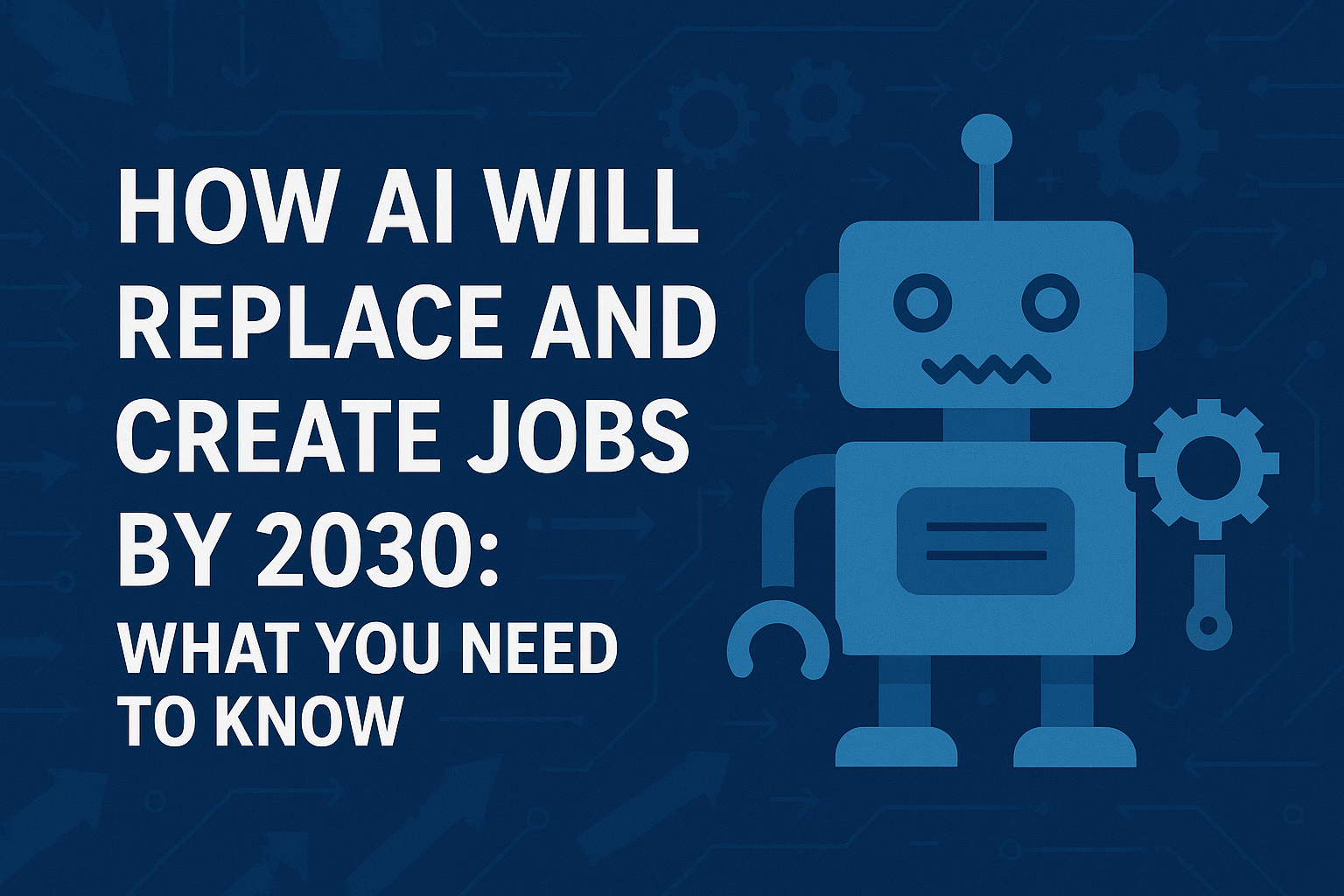Introduction
Artificial Intelligence (AI) is revolutionizing industries across the globe. From automating repetitive tasks to analyzing vast datasets at lightning speed, AI is fundamentally changing how businesses operate. But with this technological shift comes a critical question: Will AI take our jobs?
The reality is more nuanced. AI will replace some jobs—but it will also create many new ones. In this blog post, we’ll explore which jobs are most at risk, what new opportunities AI will bring by 2030, and how you can future-proof your career in this rapidly evolving landscape.
AI Replacing Jobs: What’s at Risk?
1. Repetitive Manual Jobs
- Data Entry Clerks
- Cashiers and Checkout Operators
- Factory Line Workers
- Telemarketers
- Basic Customer Support Agents
These roles are easily replaced because machines can perform them faster, cheaper, and without fatigue.
🔍 Stat: A 2024 study by McKinsey predicted that up to 25% of current work activities across all jobs could be automated by 2030.
2. Administrative and Support Roles
- Receptionists
- Bookkeepers
- Payroll Clerks
- Travel Agents
AI tools like chatbots, virtual assistants, and automation software are becoming more sophisticated and cost-effective.
AI Creating Jobs: New Opportunities Ahead
1. AI and Machine Learning Specialists
- AI Engineers
- Data Scientists
- Machine Learning Developers
- AI Ethicists
- AI Trainers
2. Tech-Enhanced Creative Roles
- Content Creators using AI tools
- UX Designers and Creative Technologists
- AI-assisted Video Editors and Animators
3. Cybersecurity Experts
- Cybersecurity Analysts
- Threat Intelligence Experts
- AI-Driven Security Architects
4. AI-Augmented Healthcare Professionals
- Radiologists using AI
- Robotic Surgery Operators
- AI Medical Device Developers
The Shift: Humans + AI = Augmented Workforce
By 2030, the most successful workers will be those who collaborate with AI, not compete against it. AI will handle the boring and repetitive, while humans focus on the strategic, creative, and empathetic tasks.
💡 Example: A human copywriter might use AI to generate content ideas, but still apply tone, style, and emotional nuance—something machines can't master (yet).
Future-Proof Skills for 2030
- Critical Thinking & Problem Solving
- Emotional Intelligence
- Digital Literacy
- AI Tool Proficiency (e.g., prompt engineering)
- Adaptability & Lifelong Learning
Conclusion: Change Is Coming—Get Ready
AI will reshape the job market by 2030. While certain roles will disappear, many new and better opportunities will emerge. The key is to adapt, learn continuously, and embrace AI as a tool—not a threat.
Whether you're a student, job seeker, or entrepreneur, now is the time to prepare. The future doesn’t belong to machines—it belongs to humans who know how to use them.
